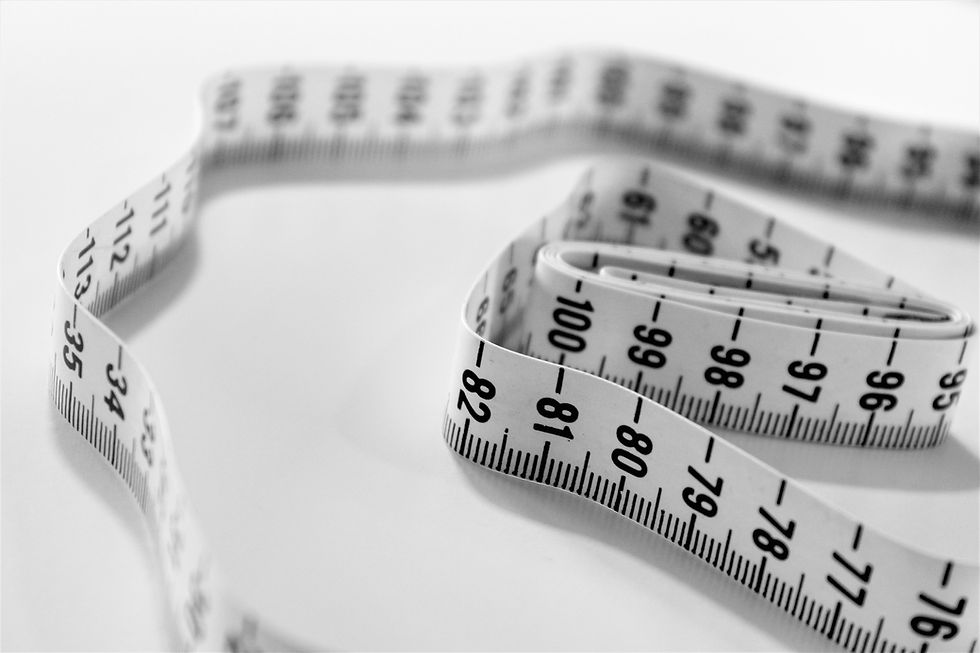Weight Loss vs. Fat Loss: What’s the Difference?
- Pamela P Cumberbatch, N.D

- Mar 9, 2025
- 3 min read
Updated: Mar 27, 2025
Weight Loss: A Number on the Scale
Think of weight loss as a general decrease in your overall body weight. You can lose weight from fat, muscle, water, or even bone mass. While seeing the numbers drop on the scale can be motivating, it doesn’t tell the whole story about your health or body composition.
Fat Loss: Sculpting a Healthier You
Fat loss, on the other hand, is about specifically targeting and reducing adipose tissue (body fat). This is where the real magic happens. It can lead to tangible improvements in your health and physique, such as enhanced fitness and a reduced risk of chronic diseases.
Why Should You Focus on Fat Loss, Not Just Weight Loss?
Focusing on fat loss rather than just weight loss offers several benefits:
Boost Your Metabolism: Preserving lean muscle mass during fat loss keeps your metabolism active. This means you burn more calories even at rest.
Reveal Your Hard-Earned Muscles: Reducing body fat allows your muscles to shine. This gives you a more toned and defined appearance.
Protect Your Long-Term Health: Lower body fat percentages are linked to a reduced risk of serious health conditions like heart disease, type 2 diabetes, and certain cancers.
How to Achieve Sustainable Fat Loss (The Right Way)
Instead of resorting to crash diets or extreme measures, focus on sustainable strategies for attaining fat loss:
Fuel Your Body with Nutrient-Dense Foods
Prioritize whole, unprocessed foods like fruits, vegetables, lean proteins, and whole grains.
Don’t skimp on protein! It’s crucial for preserving muscle mass during fat loss.
Limit processed foods, sugary drinks, and excessive unhealthy fats.
Move Your Body Regularly
Combine cardio exercises (like running, swimming, or cycling) to burn calories.
Incorporate strength training to build and maintain muscle mass.
Find activities you enjoy to make exercise a consistent part of your routine.
Prioritize Quality Sleep
Aim for 7-9 hours of quality sleep each night.
Sufficient sleep helps regulate hormones that control appetite and fat storage.
A well-rested body is more efficient at burning fat.
Manage Stress
Chronic stress can lead to increased cortisol levels, promoting fat storage.
Find healthy ways to manage stress, such as yoga, meditation, or spending time in nature.
The Psychological Aspect of Fat Loss
Embarking on a fat loss journey is not just about shedding pounds. It’s about embracing a holistic lifestyle that fosters overall well-being. Many people find that their motivation fluctuates during their journey. It’s important to set realistic goals and celebrate small victories along the way.
Consider journaling your progress and feelings. This can help you stay accountable and recognize the emotional milestones that accompany physical ones. Remember, mental health is just as vital as physical health.
A Supportive Community
Engaging with a supportive community can also boost your chances of success. Surround yourself with people who encourage and motivate you. They can share tips and experiences that resonate with your journey.
Our Reboot & Detox Program is meticulously designed to guide you through this transformation. We offer:
Whole-Food Nutrition: By focusing on nutrient-dense, unprocessed foods, you nourish your body effectively. This promotes satiety and reduces unnecessary cravings.
Gentle Detox Strategies: Our program incorporates safe and natural detox methods. These support your body’s inherent ability to eliminate toxins, setting the stage for optimal fat loss.
By committing to this balanced approach, you’re not just aiming for a number on the scale; you’re investing in a healthier, more vibrant version of yourself. Join us today and take the first step towards unlocking a revitalized, happier you.




Comments